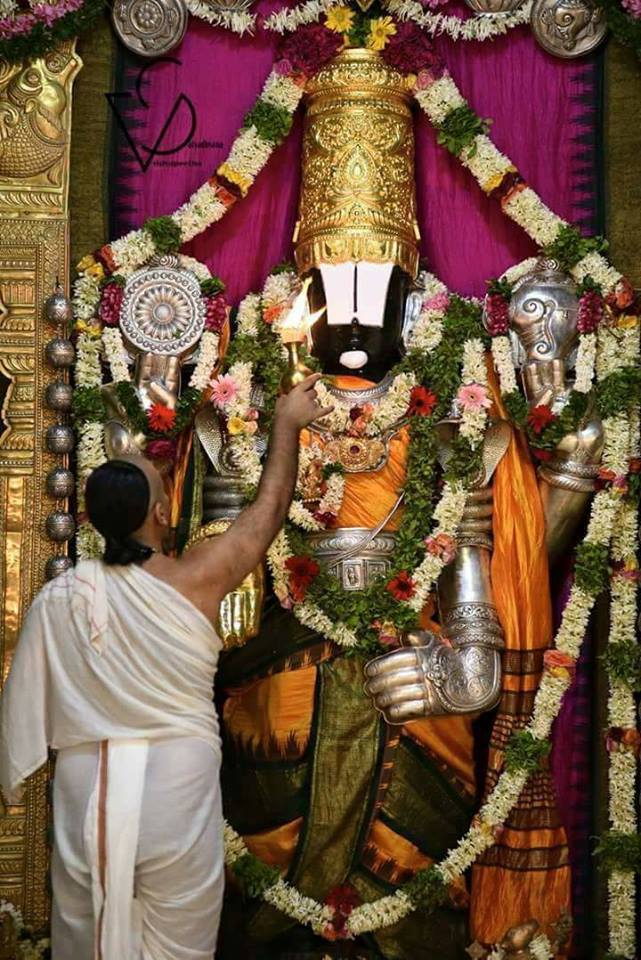Gita : Ch-13. Slo-8 to 12. Slokams and combined - Discussion-7.
17/03/2017
Srimad Bhagavad-Gita :
Chapter-13.( ( Kshetra-kshetrajna-vibhaga-yogam )
Slokam-s. 8 to 12.
(8)
amanitvamadambhitvam ahimsa kshantirarjavam,
acaryopasanam saucam sthairyamatmavinigrahah.
amanitvam = humility;
adambhitvam = pridelessness;
ahimsa = nonviolence;
kshantih = tolerance;
arjavam = simplicity;
acarya-upasanam = approaching a bona fide spiritual master;
saucam = cleanliness;
sthairyam = steadfastness;
atma-vinigrahah = control;
(9)
indriyartheshu vairagyam anahankara eva ca,
janmamrtyujaravyadhiduhkhadoshanudarsanam.
indriya-artheshu = in the matter of the senses;
vairagyam = enunciation;
anahankarah = being without false egoism;
eva = certainly;
ca = also;
janma = birth;
mrtyu = death;
jara = old age;
vyadhi = disease;
duhkha = distress;
dosha = fault;
anudarsanam = observing;
(10).
asaktiranabhishvangah putradaragrahadishu,
nityam ca sama-cittatvam ishtanishtopapattishu.
asaktih = without attachment;
anabhishvangah = without association;
putra = son;
dara = wife;
graha-adishu = home, etc.;
nityam ca = also;
sama-cittatvam = equilibrium;
ishta = desirable;
anishtah = undesirable;
upapattishu = having obtained;
(11)
mayi cananyayogena bhaktiravyabhicarini,
viviktadesasevitvam aratirjanasamsadi.
mayi = unto Me;
ca = also;
ananya-yogena = by devotional service;
bhaktih = devotion;
avyabhicarini = constant, unalloyed;
vivikta = solitary;
desa = place;
sevitvam = aspiring;
aratih = without attachment;
jana = people in general;
samsadi = mass;
(12)
adhyatmajnananityatvah tattvajnanarthadarsanam,
etat jnanamiti proktam ajnanam yadatonyatha.
adhyatma = pertaining to the self;
jnana = knowledge;
nityatvam = eternity;
tattva-jnana = knowledge of the truth;
artha = the object;
darsanam = philosophy;
etat = all this;
jnanam = knowledge;
iti = thus;
proktam = declared;
ajnanam = ignorance;
yat = that which;
atah = from this;
anyatha = others.
Discussion - 7. 20 virtues :
(I).
1. Such a person automatically follows ahimsa or non-violence to any living being by thought, word or deed and possesses tolerance towards others with an unperturbed mind even if they are antagonistic.
2. Straightforwardness without duplicity is another quality found in such a person and of paramount importance is rendering unmotivated devotion to the spiritual master who illuminates the path and guides the disciple to transcendental knowledge.
(II).
1. The Mundaka Upanisad I.II.XII beginning parikshya lokan karmachitan declares: Accept an acarya or spiritual preceptor who is learned and established in the brahman or spiritual substratum pervading all existence.
2. A preceptor is only a spiritual master when his knowledge is established in the Vedic scriptures, when he is pureof heart, when he has received Vaisnava initiation in a bonafide parampara or discipliic succession from an acarya devotee of Lord Krishna or any of His avatars or authorised incarnations, when he has learned sacred rituals and holy mantras from such a preceptor, when he is devoted to chanting the Supreme Lord Krishna's holy names and when he has full unwavering faith in the eternal truths of the Vedic scriptures as taught by his spiritual master and the knowledge of these truths is exemplified in his everyday life.
3.Only such an exemplary person is qualified to be an acarya or spiritual master.
(III).
1. Purity both externally in the body by earth and water and internally in the mind by discrimination, removing the mental impurities which pollute the consciousness.
2. This gives equipoise of mind in perturbing situations and obstacles on the path of moksa or liberation from material existence and also gives control over the body, mind and senses, keeping them from impetuously rushing down wrong paths prohibited by the Vedic injunctions.
To be continued ...





Comments
Post a Comment